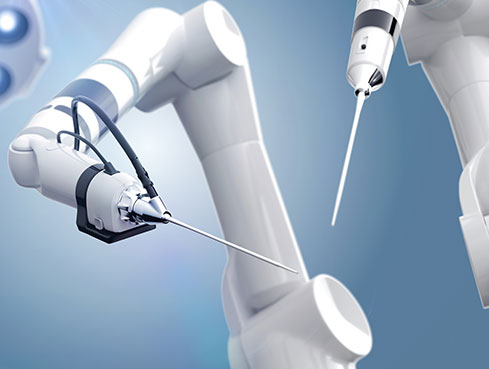
Evolution in Surgical Technology
While surgery is generally the most effective treatment for many colorectal conditions, traditional open surgery with a large incision has its drawbacks – such as a hospital stay of a week or longer, and a lengthy recovery of up to six weeks.
Fortunately, less invasive options are available to many patients facing colorectal surgery. The most common of these is laparoscopic surgery, in which smaller incisions are used. While laparoscopy is effective for many routine procedures, it has limitations when more intricate and complex surgery is required.
Thanks to the latest evolution in surgical technology, doctors now have an effective alternative to traditional open and laparoscopic surgery – robotically assisted surgery. It allows surgeons to provide patients with the best of both open and laparoscopic approaches.

With the assistance of the da Vinci Surgical System, surgeons can now operate using tiny one to two centimeter incisions, but with greater precision and control than ever before. da Vinci can help surgeons minimize the pain and risk associated with surgery while increasing the likelihood of a fast recovery and excellent clinical outcomes.
The physicians at Saint Peter's specialize in several colorectal specialty procedures and diagnoses.
